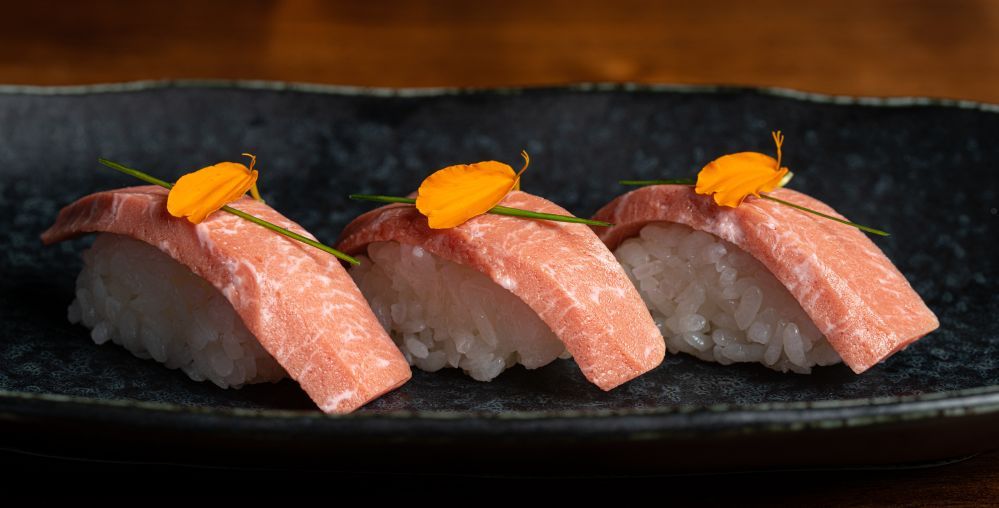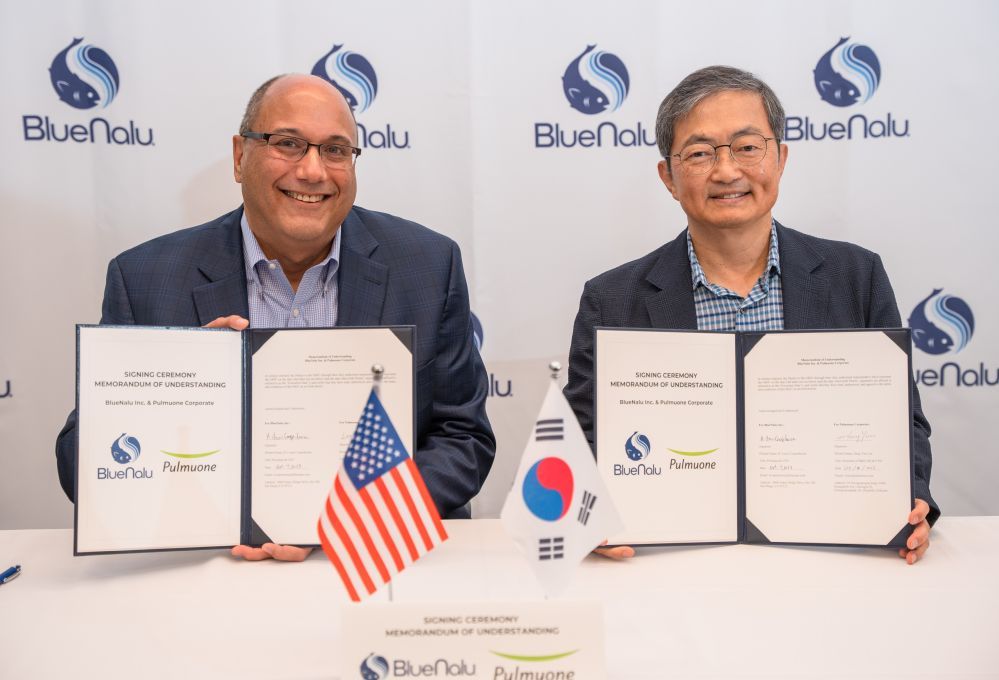While the unit economics of making chicken nuggets in a bioreactor are likely to be challenging for some time, says BlueNalu CEO Lou Cooperhouse, making Bluefin tuna—”the Wagyu beef of the sea”—from cells makes a lot more economic sense.
Speaking to AgFunderNews after extending strategic partnerships with leading seafood players in Japan, Korea, and Thailand, Cooperhouse said he remained confident investors would see a “rapid” return on a large-scale commercial facility deploying BlueNalu’s technology.
And while the media narrative around cultivated meat has soured in recent months and alt protein investors are becoming more cautious, a combination of strategic partnerships, scalable technology, and a focus on high-value products should help BlueNalu stand out from the crowd, he claimed.
According to a techno-economic analysis conducted last year, BlueNalu could achieve margins “north of 70%” with a 140,000 sq ft facility housing eight 100,000-L bioreactors producing 6 million pounds of bluefin tuna toro a year, said Cooperhouse.
“We have identified what that cost will be [to build and operate a large-scale plant], but I think given the value of bluefin tuna, the rate of return will be quite rapid. And that’s based on selling at price parity [with conventional tuna], even though consumers have said they’re willing to pay a premium for this type of product.”
Series B?
BlueNalu currently operates out of a pilot facility in San Diego that it is scaling up to produce sufficient quantities (“batches in the hundreds of pounds”) for a small-scale launch.
It hopes to break ground on a large-scale plant in 2026, with a view to starting commercial-scale production 18 months later, assuming it can attract the funding (Cooperhouse won’t say how much) needed to make that happen.
To date, Cooperhouse has raised just under $85 million, including a $4.5 million seed round in 2018, a $20 million series A round in 2019, and a $60 million convertible note in 2020. He is currently raising a series B round but is not sharing details of its progress.
The location of the large-scale plant will “depend on some of the market feedback we receive and some of the offtake commitments we hope to get [that could in turn] facilitate getting the capital to build a large-scale facility,” he explained.
High-value products
Unlike many cultivated meat startups, who are combining cell-cultured chicken or beef with textured plant-based proteins to provide texture and lower costs, BlueNalu intends to launch with whole muscle bluefin tuna toro, a high-value product that commands a premium price, said Cooperhouse.
“Some of the cell-cultured chicken nuggets are mixed with a fair amount of plant-based protein, which begs the question, what’s the consumer value proposition here?”
Bluefin tuna toro (the fatty belly of the fish) is “available in very limited supply, can be extremely variable in its quality and sensory attributes, and has faced steep declines in fish stocks due to overfishing and illegal, unregulated and unreported fishing,” added Cooperhouse.
Make it in a bioreactor, and you can ensure a consistent product that is also free of mercury and microplastics, he claimed.

Tech breakthroughs
BlueNalu – which is working with Nutreco on bringing down the cost of animal-free growth media – says two key technical factors have been key to its cost projections: achieving single cell suspension (which means it can grow large numbers of muscle cells without microcarriers in suspension); and ‘lipid-loading’ technology (prompting muscle cells to store a customized level of fat so BlueNalu doesn’t have to grow muscle and fat cells separately).
No scaffolding or secondary bioreactors are needed, and the harvested cells are put through a cold extrusion process to create whole-muscle type products BlueNalu claims have the same amino acid and fatty acid profiles of regular bluefin tuna.

APAC partnerships
The memorandums of understanding (MOUs) struck this month with Mitsubishi Corp in Japan, Pulmuone in South Korea, and Thai Union in Thailand are designed to help pave the way for cultivated seafood market introductions in APAC, said Cooperhouse, who forged connections across the food industry in his previous role as executive director of the Rutgers University Food Innovation Center.
The collaborations focus on three areas:
1 – Market research to understand consumer preferences, emerging trends, and evolving market dynamics.
2 – Understanding the regulatory requirements unique to each market to expedite approvals and certifications.
3 – Developing go-to-market and supply chain management strategies to introduce BlueNalu’s products.
Further reading:
Dutch cultivated meat startup Meatable raises $35m Series B, gears up for market entry in 2024
Omeat emerges from stealth armed with $40m to scale novel approach to cultivated meat production





